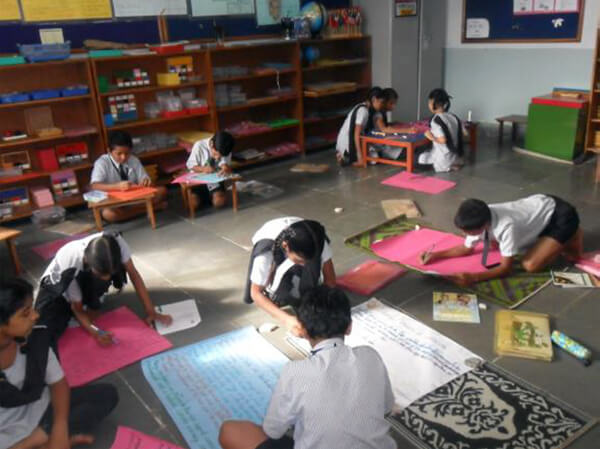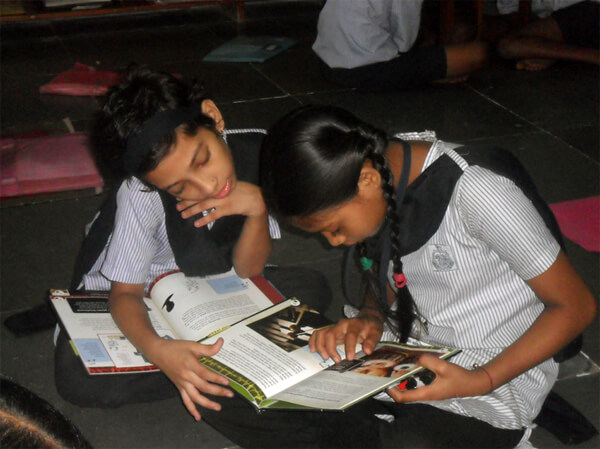The ‘Resource Room’ is a learning space designed to facilitate self-initiated and self-directed learning in children, roughly in the age-group of 9 – 12 years of age. Here, children work in self-chosen work groups, on topics of their choice, selected from a library of learning resources, and take their learning forward in line with their own unique interests and inquiries.
For instance, a group of children may choose to work on the topic of ‘Butterflies’. The initial learning material would give them some information on the topic, and thereafter, as the children go about studying the material and examining their existing knowledge on butterflies, they would also evolve further inquiries about the same. Next, the children would plan and initiate a process of collaborative research, which would ultimately culminate with a body of knowledge and understanding on the topic of ‘Butterflies’, put together by the children themselves based on their own study and explorations. Along the way, the children would pause at regular intervals to monitor and review their progress, as also reflect on their learning. The teacher’s role in this entire process would be that of a facilitator, guiding and helping the children along, as and when required.
Such a learning experience, in addition to some other specific learning activities, builds in children not just a meaningful and lasting understanding of the topic at hand, but also a deep sense of ownership towards one’s work, as also the development of long-term, independent and effective learning skills. In effect therefore, it strengths the children’s capacity to take charge of their own learning.
The Resource Room approach aligns with the ‘child-centric’ approach to learning, and also provides ample opportunities for the development of both ‘self-regulated learning skills’ and ‘21st century learning skills’ , each of these constructs being at the very forefront of thinking and research in the field of learning and education today.
The more I read about the work of educationists and academics such as, Maria Montessori, Gijubhai Badheka, John Holt, David Horsburgh, Daniel Greenberg, J Krishnamurti and Barry Zimmerman, among others, the more convinced I feel about exploring such an approach to learning and education, in a more focused manner.

All hands on the deck – an all-class project in progress!

Research time!